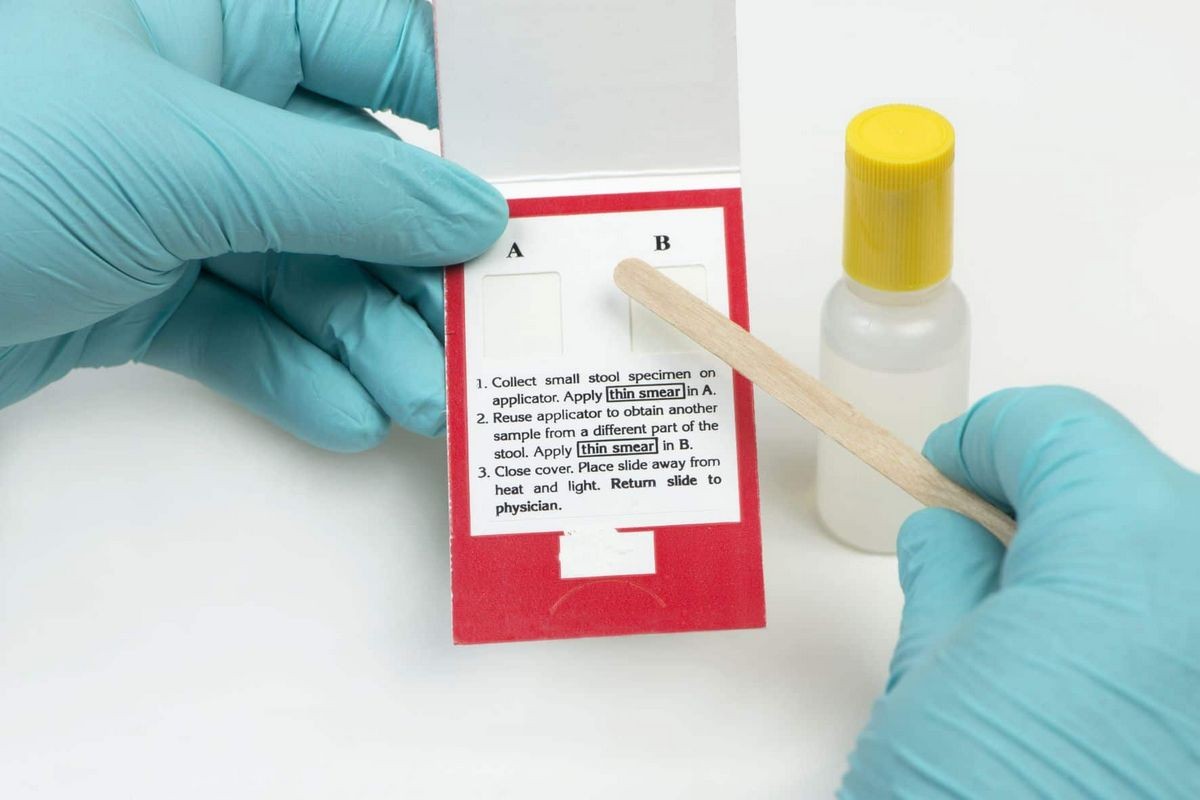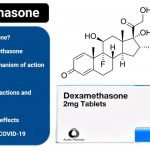
Contents
Fecal Occult Blood Test
The fecal occult blood test detects hidden blood in normal-colored stool. This blood comes from slow bleeding in the gastrointestinal tract. Fecal occult blood cannot be seen with the naked eye and is only detected through laboratory testing. This type of bleeding has similar causes to more noticeable rectal bleeding and melena. To learn more about different patterns of gastrointestinal bleeding, read the Rectal Bleeding article.
Why is fecal occult blood testing done?
A fecal occult blood test is primarily used to detect colon cancer in people without intestinal symptoms. Early detection of colon cancer is crucial because it can be treated surgically before it spreads to other organs. Additionally, fecal occult blood testing can identify precancerous polyps, which can be removed to prevent cancer.
How is a fecal occult blood test performed?
To perform a fecal occult blood test, multiple stool samples are collected for testing. Since bleeding from cancers and polyps can be intermittent, testing multiple samples increases the chances of detecting blood.
There are two types of fecal occult blood tests:
- Chemical testing: This method uses a solution containing the chemical guaiac and an oxidizing chemical. If blood is present in the stool sample, the interaction of guaiac with the heme portion of the hemoglobin molecule turns the solution blue.
- Immunologic testing: In this type of testing, a stool sample is mixed with a solution containing an antibody to globin, the protein part of hemoglobin. If there is blood present, the antibody/gold/globin complex settles as a visible line on the test strip.
How do the results of chemical and immunologic fecal occult blood tests differ?
Chemical fecal occult blood tests are inexpensive but have disadvantages:
- Fruits and vegetables can falsely affect the test results, so certain foods must be restricted before stool sample collection.
- Unlike heme, which can travel through the digestive system, globin is destroyed in the small intestine. This means that a positive chemical fecal occult blood test may indicate bleeding anywhere in the stomach or intestines, while a positive immunologic test specifically points to bleeding in the colon. To avoid false positives, red meat must be restricted before sample collection.
- Certain medications and vitamin C can also affect chemical fecal occult blood test results, requiring them to be stopped during sample collection.
Immunologic fecal occult blood tests have advantages:
- They are more sensitive to blood, making them better at detecting cancers and precancerous polyps.
- They are more specific for blood, resulting in fewer abnormal tests due to interfering substances in the diet. An abnormal immunologic test is more likely to indicate cancer or a precancerous polyp.
As a result, immunologic tests require less follow-up testing, like colonoscopies, for falsely abnormal results.
How effective are fecal occult blood tests?
Large studies have shown that chemical fecal occult blood tests reduce colon cancer mortality by at least 15%-20%. Ongoing studies with immunologic tests are expected to yield even better results.
How should fecal occult blood tests be used?
Fecal occult blood tests are an important screening tool for colon cancer, but they are not sufficient on their own. Endoscopic examination of the colon, such as sigmoidoscopy and/or colonoscopy, is necessary for a comprehensive evaluation. The age at which testing should begin and the frequency of testing depend on the individual’s risk factors for colon cancer. Patients with a family history of colon cancer, previous polyps, or diseases associated with higher risk may need earlier and more frequent testing.
It is important to note that a positive fecal occult blood test does not automatically mean colon cancer or a polyp. There are various benign causes of occult blood in the digestive system. Patients with positive tests should consult with a physician to rule out cancer, polyps, and other sources of intestinal bleeding.


